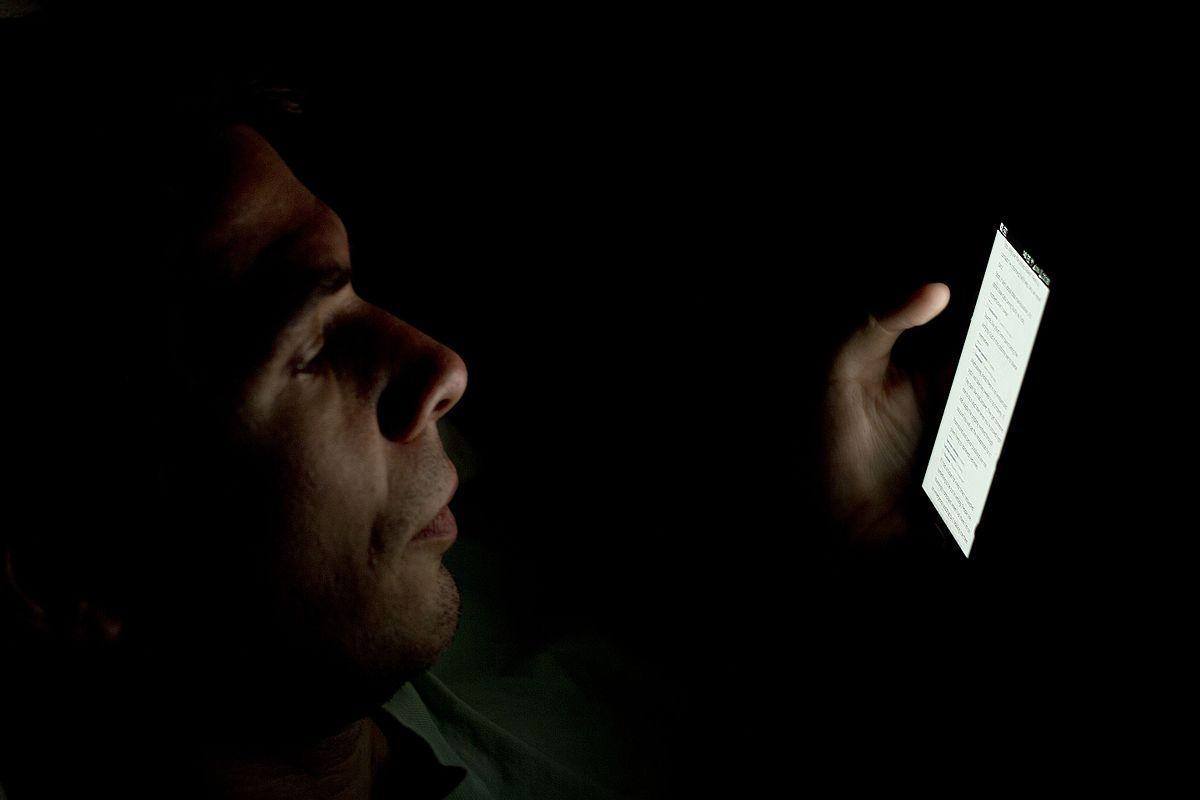
photo via appbot under the Creative Commons license
What do you do when you want to get in touch with a friend or know the temperature? The answer is almost always at our fingertips when we would like to get the answer to a question.
Modern technology has changed our world drastically in the way in which we communicate with one another. Smartphones and other technological devices may make it easier to communicate with others, but the addictive quality of this technology is taking a turn on how we interact with each other in real life and how we take care of our health.
This addiction can happen to anyone at any age. However, the addiction is affecting young people rather than older, due to the fact that technology is advancing and becoming more convenient for teenagers. “One out of two teenagers feels ‘addicted’ to their phone, according to a recent study,” said Fox News. The problem of this addiction is becoming more clear as even teens start to notice their addiction and the impacts it has on their lives.
A major issue with the modern technology used today is the lack of social interaction kids are experiencing in real life. Smartphone addiction can cause teenagers to become isolated from peers and family, impacting the relationships one can have outside of the screen. Vast amount of screen time when with others can cause them to feel unimportant and inferior compared to the phone. “I noticed that when I use my phone around my parents they get upset because they feel like I’m not enjoying their company,” said junior Erica Schwedes.
Excessive use in technology before bed has shown differences in sleep cycles and patterns. The blue light emitted from your device triggers a more awake feeling, which signals your body to wake up in the morning. This blue light cancels out the red light, which signals your body to go to sleep at night. Using your phone for a long period of time before you try to fall asleep may cause insomnia. “It takes me so long to fall asleep every night because I stay up on my phone,” said sophomore Skyler Constantino.
“Research published in Clinical Psychological Science found that teens who spend five or more hours per day on their devices are 71% more likely to have one risk factor for suicide, like depression or suicidal ideation” said Fox News.
Overusing your electronic device can not only keep you up at night, but can also cause mental and physical health issues. Studies shown that being addicted to your smartphone can cause problems with depression and anxiety. “Research published in Clinical Psychological Science found that teens who spend five or more hours per day on their devices are 71% more likely to have one risk factor for suicide, like depression or suicidal ideation,” said Fox News. Some may experience anxiety when they are in withdrawal from their device, afraid they will miss out or something. “I feel afraid that I’m going to miss out something,” said Schwedes.
This addiction can also cause problems in vision. Excessive amounts of looking at a digital device can cause dry eyes, a condition when you have decreased tear production. “The combination of not blinking enough and bringing the device closer than you normally look at objects; It strains your eyes,” said Optician Andy Hepworth. The blue light can damage the eye’s retina, which can lead to many chemical reactions. These reactions can lead to Macular Degeneration, the permanent damage of the photoreceptor cells, resulting in permanent vision loss.
Using your cell phone can also cause pains throughout your muscles and joints. Hunching and looking down at your phone too much can cause muscle strains and nerve pain. The pain can start in your neck and radiate through your shoulders and back. Texting is discovered to cause trigger finger, a condition where your thumb or finger gets stuck in a position and pops when you straighten it. Another identified condition is arthritis at the base of the thumb, Osteoarthritis. Cubital Tunnel Syndrome is another effect of smartphone overuse, which causes pain in the elbows as a result of bending the elbows too much.
Teens also notice the impacts of their addiction towards their everyday life. While studying for tests and completing homework, teens may find it hard to concentrate when their phone is near them. Also, students may use the internet to easily access answers, instead of actually thinking. “It takes me all night to do my homework because I can’t help but check my phone every ten minutes or so,” said Constantino.
“using a cell phone while driving caused an estimated 1.5 million car accidents in the U.S. in 2018” -National Safety Council
Your addiction can also cause further major effects on your life, even by taking it away. Cell phone usage while driving is a major problem occurring today. According to the National Safety Council, using a cell phone while driving caused an estimated 1.5 million car accidents in the U.S. in 2018.

photo via Cannon Air Force Base under the Creative Commons license
Not only are drivers causing the accidents, but also pedestrians. Pedestrians can often be seen looking down at their cell phone while walking, putting their life and others’ in danger. According to a Governors Highway Safety Association report, nearly 6,000 pedestrians were struck and killed by motor vehicles in 2017. Cities across the United States have enforced laws to diminish this issue, such as Honolulu, Hawaii. Violators receive fines starting at $15, but the prices increase for repeating violators.
A major controversy in society today revolves around the question of if smartphones can cause cancer. Scientists have done research to solve this concern, but are still unsure. Due to the fact that technology is so new, it is hard to determine whether smartphones and other modern forms of technology will have long term effects or are linked to brain tumors. As our technology continues to advance, more investigations will be done and the truth will be uncovered.
The advances in technology have changed the way the world functions, and not in a completely positive way. Recognizing your relationship with your smartphone is the first way to improve your unhealthy habit. If you want to have a healthier relationship with your peers and even your smartphone, make sure to limit your cell phone use. Next time you pick up your smartphone, reflect on the possible outcomes and how your life can be changed forever.





































